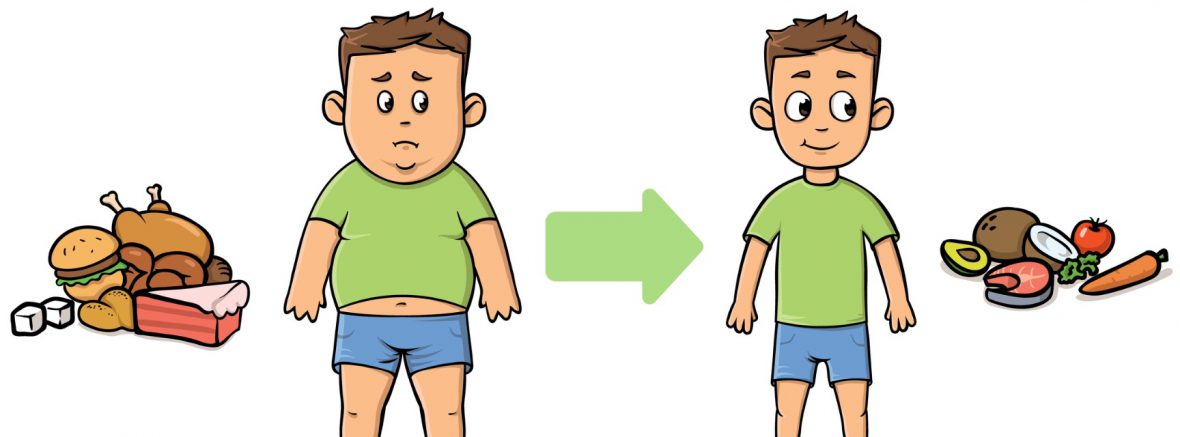If you have been keen, then you know that the number of children with obesity has been on a steady rise in the US. This has led to increased bullying, social isolation, depression, and lower self-esteem; both physically and mentally. Obesity has been scientifically proven to cause chronic health conditions and diseases, and it is a duty to the entire health care community, the government, and parents to makes changes that will effectively prevent childhood obesity.
How can you prevent childhood obesity?
A third of children in the US are overweight and obese. This is due to various reasons, with the most common being:
- Lack of physical activity.
- Unhealthy eating patterns.
- In rare occasions, hormonal problems may be a cause.
Most people attribute a history of obesity in the family to being a cause of obesity; and although children who have overweight parents and siblings have a high chance of becoming overweight as well, this might be due to shared family behaviors, instead of genetics. With the cloud of uncertainty about preventing childhood obesity hanging around, let’s take a more transparent look at the changes you can implement to prevent childhood obesity.
- Help your children develop healthy eating habits
Healthy eating habits go a long way in maintaining healthy weight, discipline, and a healthy outlook into the world surrounding us. You can help your children develop healthy eating habits by balancing calories. This entails serving your children foods that provide adequate nutrition and the right number of calories.
- Vegetables and fruits are very nutritious. You can also use them to make healthy and fun snacks, meals, and juices that are appetizing and delicious.
- Whole grain products are better than refined grain products because they contain more fiber and nutrients.
- Always pick low-fat or non-fat dairy products.
- For proteins, you can choose lean meat, poultry, fish, lentils, and beans.
- Hydration helps with digestion and increases metabolism. You should, therefore, encourage your children to increase water intake.
- Find a substitute for sugar.
- Avoid saturated fat.
- Remove calorie-rich temptations
Although it’s okay to indulge in foods with high fats and high sugar, everything should be done in moderation. Always treat calorie-rich foods as treats by reducing the temptations around the house and only giving them to your children once in a while. Instead of treating these foods as snacks, substitute them with healthier alternatives such as fruits or nuts.
- Make your children’s favorite foods healthier
Most children find it hard to enjoy new foods. However, this does not mean that they cannot have healthier meals. There are numerous ways through which we can make kids’ favorites healthier by using healthier alternatives.
- Make healthy food fun
Most children are picky when it comes to food. You can help your child try out healthier foods by cutting up vegetables into fun shapes using cookie cutters, incorporating their favorite dips and sauces into the meal, and working with your child in the kitchen. Cooking can be a fun activity for you and your child; and a great way to understand the types of foods that they love while you bond.
- Help your kids stay active
Nowadays, kids have more screen time than lean time; and it becomes even harder for your child to be active if screen time is not controlled. It is important for your child to get at least 60 minutes of moderately intense physical activity. Encourage your child to go out during playtime and engage in activities such as bike riding, walking, jogging, dancing, playing tag, etc. If your child is finding it hard to leave the house, you can always offer your company and be their partner. An even better way to do this can be through incorporating exercise in your daily routine, and having your child join you. It is a great way to lead by example, keep fit, and spend quality time with a loved one.
- Be a good example
Family behavior can lead to childhood obesity, and it is no doubt that a parent’s lifestyle choices have a significant effect on their child’s health. Although you might be okay with your diet, you must consider how your eating habits affect those of your children. Incorporating good eating habits in the family should start with you. Having a healthy lifestyle as a family ensures that you are all healthy and improves your relationship with each other.
Childhood obesity, although prevalent, can be prevented by making a few lifestyle changes. Little changes such as healthier snack options reduced sedentary time, less sugar, and more conscious food choices can go a long way in ensuring that you and your child are leading a healthy life. Although it might be hard to make these changes, it starts with clearing the pantry of calorie-rich food options and avoiding fast foods for a week, a month, and suddenly it becomes a healthy habit.



